Puppy obedience training – Training puppies to obey commands.
Ready to turn your new, little buddy into a well-mannered friend? Puppy training is essential. It helps you unlock your pup’s full potential and build a great bond. It’s vital to start training puppies early with positive methods when you bring them home.
Bringing a new puppy home is thrilling, but starting obedience training early is crucial. Make sure to be consistent from the beginning to build good behavior. Avoid using anger or punishment. Instead, focus on positive ways to teach. Teaching basic commands to puppies can start as early as 8 weeks. Start with simple commands like sit, stay, come, down, and “leave it.” Keep the lessons short, about 5 to 10 minutes each, ending them on a high note. With time and regular work, your pup will become well-behaved and listen well.
Key Takeaways
- Start puppy training as early as 8 weeks old
- Use positive reinforcement techniques like treats and praise
- Keep training sessions short, around 5-10 minutes
- Teach basic commands like sit, stay, come, down, and “leave it”
- Consistency is key to raising a well-behaved dog
Getting Started with Positive Reinforcement
Positive reinforcement is key to training your puppy well. Always avoid using punishment. Yelling or physical actions can confuse and scare your puppy. Instead, reward good behavior with treats, praise, and playtime. This approach works very well. Studies show puppies do better with rewards and praise, learning new things faster.
Keep Commands Simple and Consistent
It’s vital to make our commands easy and the same every time. Studies show that using one-word commands is best. They work about 70% of the time. So, for your puppy, keep it simple.
Work on One Behavior at a Time
Focusing on one new thing at a time is smart. It helps your puppy learn better. Plus, it helps you both get things right from the start.
Consider Your Puppy’s Attention Span
Puppies get easily distracted. Most can only focus for about 10 minutes. Make sure to keep training sessions short, 5 to 10 minutes long. Always finish on a good note. This helps your puppy learn faster and better.
Using these positive methods will mold your puppy’s behavior well. Be consistent and patient. You’re not just training a puppy, but creating a loyal and obedient friend.
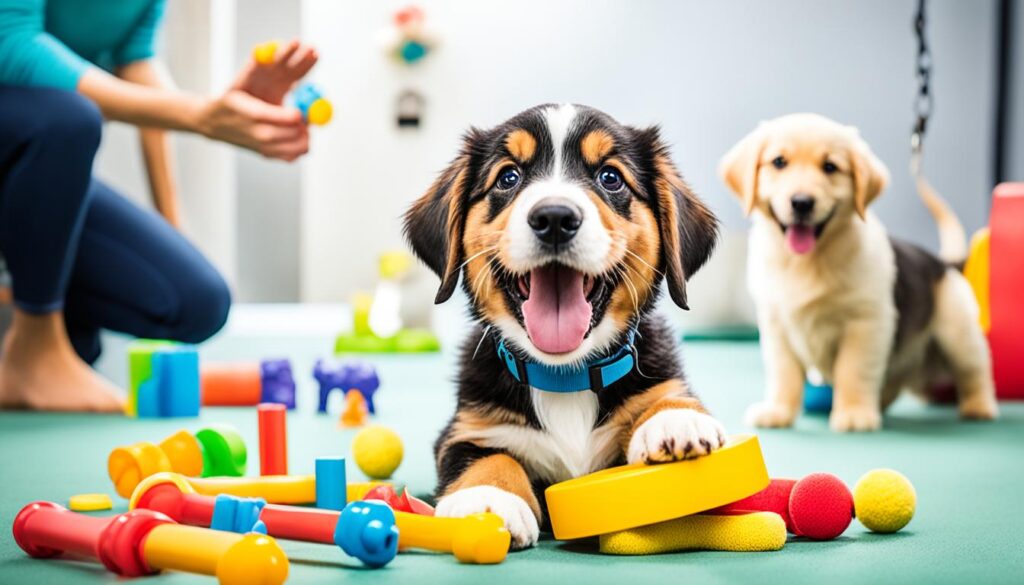
Puppy Obedience Training – Training Puppies to Obey Commands
You should start by teaching a puppy these main commands: sit, stay, come, down, and “leave it.” Consistent practice and rewarding good behavior are vital for them to learn.
Teaching the “Sit” Command
Start the “sit” command using the “capturing” or “luring” method. With capturing, reward a natural sit with treats. The luring method involves guiding your puppy into a sit using a treat. Make sure to give treats for good actions.
Teaching the “Stay” Command
First, make sure your puppy knows how to sit. Then, work on making them stay longer before you give the treat. Gradually increase the sitting time. This teaches your puppy to “stay” longer.
Teaching the “Come” Command
For the “come” command, reward your puppy whenever they turn to you after hearing their name. Avoid saying their name too many times during training. This helps to teach them to come when you call, without hesitation.
Teaching the “Down” Command
Teaching “down” is much like ‘sit.’ You can use luring or capturing. This means either guiding your dog into a down with a treat or rewarding them when they do it naturally.
Teaching the “Leave It” Command
Start the “leave it” command by holding a treat in your hand. Reward your puppy when they don’t take it. This method, based on positive reinforcement, is key to training puppies well.
Establishing a Routine and Consistency
Creating a routine and sticking to it is vital for puppies. A good schedule includes potty time, meals, play, and nap times. This helps them feel safe and behave well. Keep training sessions short, like 5-10 minutes a few times each day, with food as rewards. This method teaches them commands effectively.
Implement a Daily Schedule
A fixed daily routine makes puppies feel safe and learn good behaviors. Make sure they have regular times for when to eat, play, and rest. This gives them a sense of what to expect and makes them feel steady.
Practice Training Sessions Regularly
Regular training with rewards is the key to training your puppy well. Try 5-10 minute sessions with their food as treats every day. This will make them better at following your commands over time.
Generalize Training to Different Environments
It’s crucial that your puppy can follow orders everywhere, not just at home. Training them in many places helps them understand that they should listen no matter where they are. Be sure to reward them positively in all kinds of situations to foster good behavior.
FAQ
What are the core commands to teach a puppy?
How can we use positive reinforcement effectively in puppy training?
How long should puppy training sessions be?
How can we establish a consistent routine for puppy training?
Why is it important to generalize puppy training?
Source Links
- https://www.akc.org/expert-advice/training/teach-your-puppy-these-5-basic-commands/
- https://wagwalking.com/daily/training-puppies-to-obey-commands
- https://hotdiggitydogresort.com/blog/step-by-step-basic-dog-obedience-training-for-new-owners
- https://www.thepuppyacademy.com/blog/2020/8/24/complete-puppy-training-schedule-by-age
- https://ruffacademywi.com/the-ultimate-guide-to-dog-obedience-training/

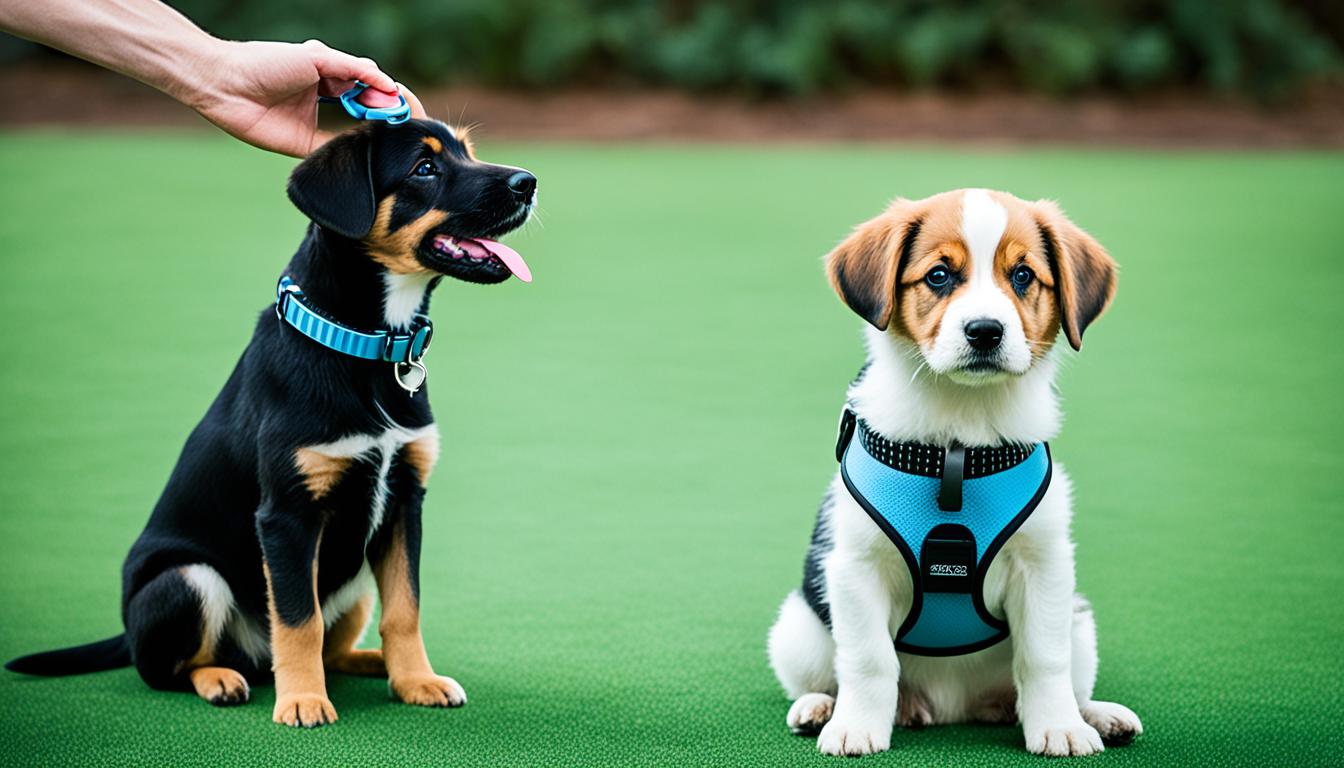


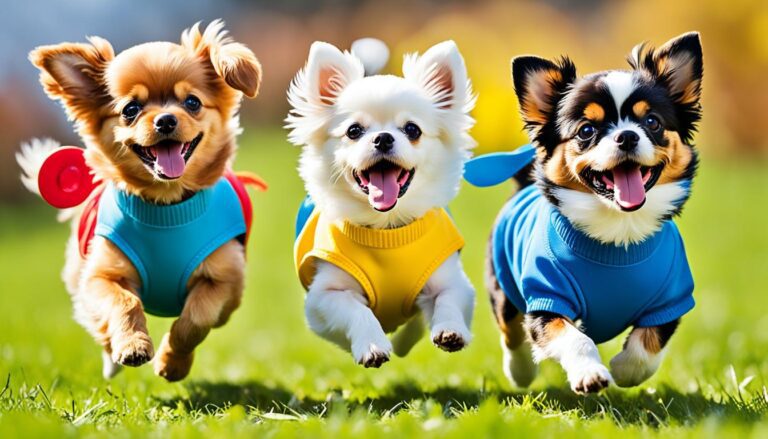

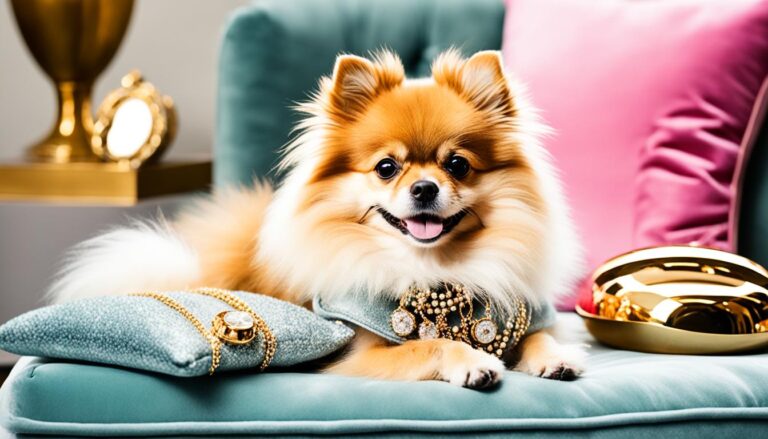
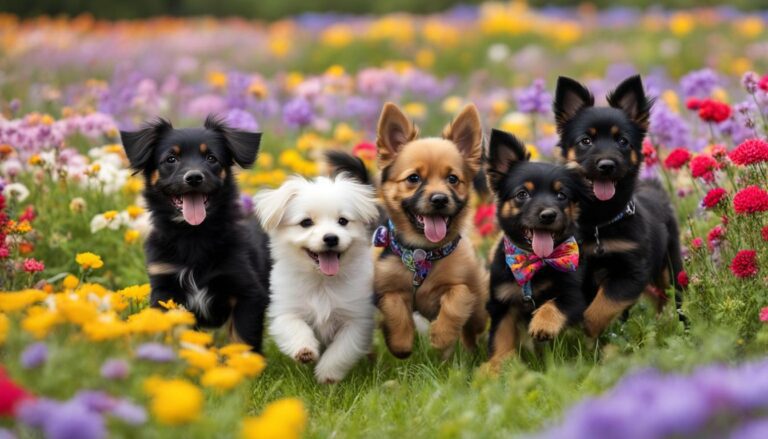
One Comment